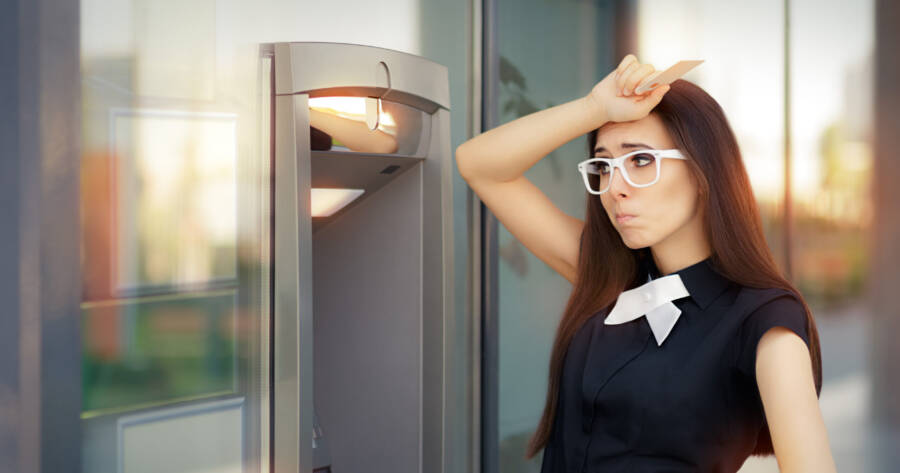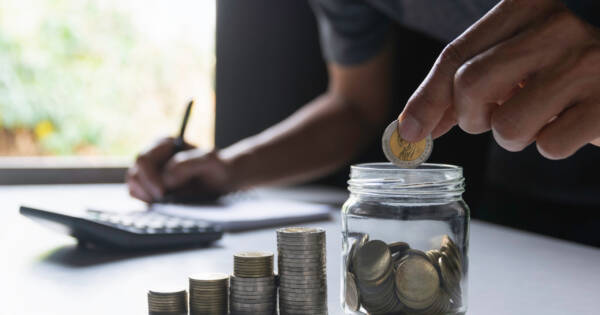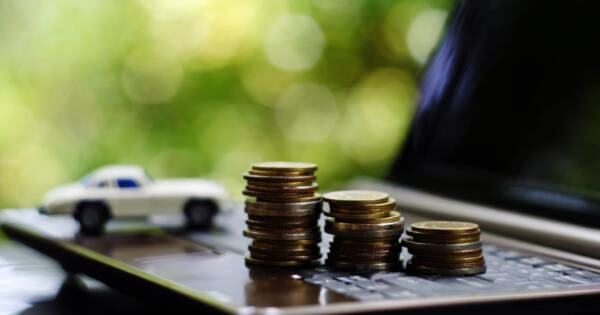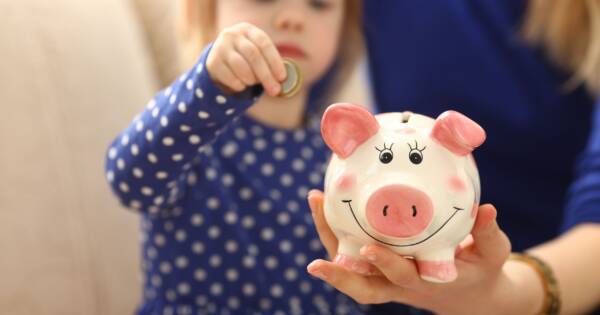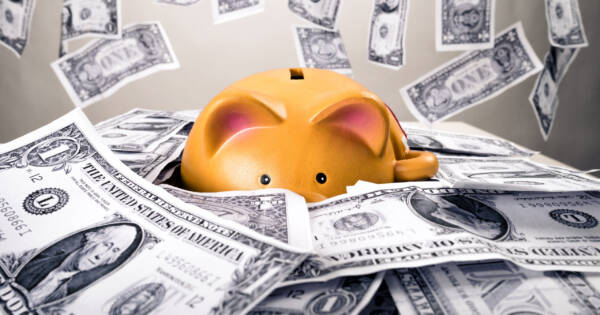According to a Federal Deposit Insurance Corporation report from 2019, 5.4% of American households don’t have a bank account. The number doesn’t sound like a huge percentage. However, with 325+ million people in the country, that’s as much as 7.1 million households that were unbanked. The reasons for why these families are going without a basic checking account varies. Some think they don’t have enough money to open and fund an account. Others have a distrust of banks (and fees), or are worried about poor credit.
The problem with going bankless, however, is that it ends up costing quite a lot. Here are some of the ways that using alternatives to banks can end up coming back to haunt your wallet.
You Pay a Ton For Check Cashing
When you receive your paycheck, all of that money ought to be yours. And that’s certainly the case if you have a checking account. You can simply deposit or cash your check with your bank free of charge. Not so, if you need to use a check cashing service. We did some research a while back on how to cash a check if you don’t have a bank account. All of the options cost money.
These services charge a percentage of the total of the check in order to cash it. These percentages vary from state to state. However, you may find yourself forking over as much as 5% (in Florida and Maine) of your hard-earned money just for the privilege of using it. Yikes! Monthly bank account fees would easily cost you less money.
You Are Forced to Pay Money Order Fees
I haven’t seen a money order in years. That’s because paying rent, the mortgage, or utilities is a fairly simple process with a checking account. You can still write out a paper check and mail it. Or set up online bill paying through your bank. But if you have no checking account, you will have to spend cash on a money order.
The fees are generally about $1.15 for a money order up to $500 or $1.55 for $500-$1000 money orders. That’s not a huge amount, but money orders have a maximum of $1000. That means paying any larger bills, like your rent, will cost you two (or more) fees.
That doesn’t even mention the additional hassle of getting a money order. You can pay via check or online in the comfort of your home. In order to get a money order, you will have to go to a USPS or Western Union location (or similar service). Then you’ll wait in line and have to sort out the amounts with the cashier. All of which makes it that much more difficult to get your bills paid on time.
This is doubly inconvenient in the pandemic, which we are currently still in. Aside from longer lines and thus longer wait times, you also have to be in fairly close proximity with other people. That’s certainly not recommended right now. Save yourself the aggravation, free time, and extra fees (and possible your health) by just getting a bank account.
You’ll Likely Use a Prepaid Card (And Pay More Fees)
If you’re uncomfortable carrying around a wad of cash, then prepaid cards might be a good option. They come at a hefty cost though. You are basically paying 1-to-5% of the money you put into the card. And then there’s ATM fees (on top of the bank’s out-of-network fees) if you need to take the cash back out. You will also pay monthly maintenance fees in some cases (usually if you don’t use the money up quickly enough). Plus losing the card is not the same as losing a replaceable debit card.
Finally, some people just don’t seem to know how to use up every last cent in a prepaid card. This often means wasting the last few dollars when the balance is low. Sure, it’s only a buck or two. But if you’re doing that often enough, those dollars add up.
Random side tip: When a prepaid card runs low, I normally advise people to put that exact amount into their Amazon account. Almost everyone shops at Amazon.com for one thing or another. However, this advice hardly makes sense if you don’t have a bank account, since the chance that you’re shopping online without one are practically zero.
One alternative is to use them in grocery stores. You can just swipe the card with a low balance and it’ll deduct everything it can from that card first. Then you’ll be asked to pay for the remaining balance using another payment method. I know Costco also lets you use multiple cards, so try there as well. Or, you know, just get a bank account.
Your Credit Cards Choices Are Severely Limited
The vast majority of credit cards require the applicant to have a bank account. There are, however, a few that do allow you to apply without one. Still, the best cards (with the lowest interest rates or best cash back rewards) do require a bank account. If you don’t have a bank account, you won’t even be aware those cards are options.
You Aren’t Really Saving Without a Bank Account
When you are forced to hold onto cash (or put everything in a prepaid card) you aren’t saving. Never mind the interest. You aren’t even thinking about putting money aside, since you can’t safely store cash anywhere. And no, hoarding spare dollar bills under your mattress is not a safe saving method.
This habit has a tendency to make you find ways to spend all the money that’s coming in. Even if you don’t necessarily need to spend that money each pay cycle, you will anyway. After all, you have nowhere else to put it. When you don’t have a bank account, you are nudged into living paycheck to paycheck. It’s a disaster waiting to happen.
The Bottom Line
As frustrating as the banking industry can be sometimes, it’s still the best option out there for money management. Don’t get personal. A bank is a business. Of course they are trying to make money. They actually provide a ton of services for free, as long as you learn the rules of when they will charge you fees. If you do it right, you can be the one abusing the industry and taking advantage.
On the other hand, going without a bank account means that you are much more vulnerable to fees. If you are avoiding banks because you hate how they nickel and dime you, it really doesn’t make sense to not have one and still be nickel and dimed elsewhere. How much money are you losing by taking a philosophical stand against banks?
I’m not here to tell you what to do. However, avoiding bank accounts doesn’t make sense financially. Without a bank account, you just pay more and keep less of your own money. That’s guaranteed.
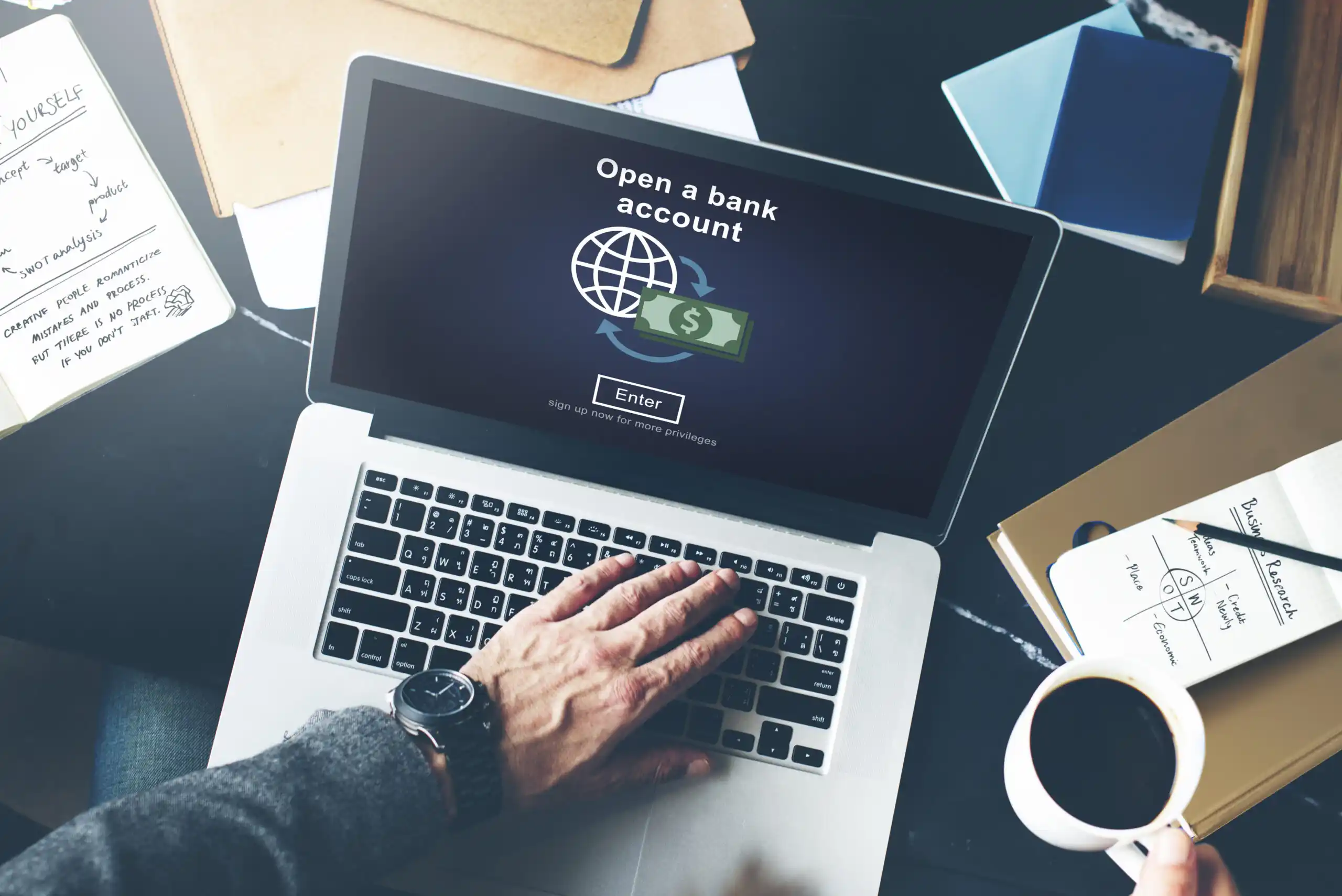 Shutterstock
Shutterstock